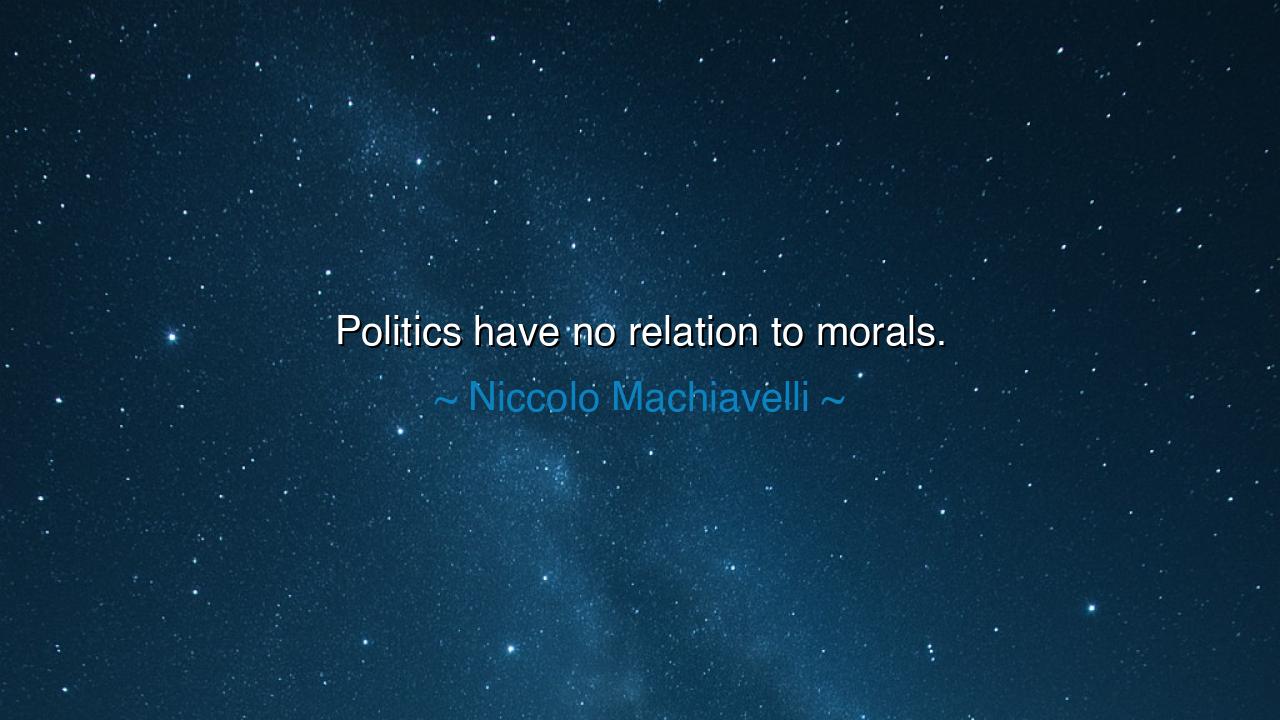
Politics have no relation to morals.






The words of Niccolò Machiavelli, “Politics have no relation to morals,” rise from the turbulent heart of Renaissance Italy, an age of betrayal, shifting alliances, and ruthless ambition. In them, Machiavelli tears away the veil of idealism to reveal the raw essence of power. He teaches that those who rule cannot always afford to act with virtue, for the preservation of the state often demands deeds that private conscience would condemn. Thus, politics belongs not to the realm of saints, but to the realm of survival.
In the ancient spirit, this truth is both hard and bitter. Kingdoms and republics alike have perished when leaders clung too tightly to abstract ideals while enemies advanced with steel and fire. To Machiavelli, morals may guide the soul of a man, but they cannot alone sustain the body of a nation. The prince, he warned in The Prince, must be both lion and fox—bold in strength, cunning in deceit—willing to act immorally if necessity commands.
History bears witness in the life of Cesare Borgia, whom Machiavelli admired. Borgia secured his power through cunning, cruelty, and swift retribution. Though ruthless, his strategies nearly carved him an empire from the chaos of Italy. His fate ultimately failed due to fortune, not lack of skill. To Machiavelli, Borgia embodied the principle that politics must often forsake morals in order to prevail. His reign was proof that mercy without strength invites ruin, while cruelty tempered by calculation may secure peace.
Yet the words are not a call to abandon virtue entirely, but to recognize the battlefield upon which rulers stand. A leader who clings only to morals may be destroyed, taking his people with him. But one who understands the separation between private virtue and public duty may preserve the state, and in doing so, protect countless lives. Machiavelli’s lesson is not that morality is worthless, but that politics is a harsh arena where survival is the first law.
So let this wisdom be passed down: the union of politics and morals is a dream, but the divorce between them is reality. Leaders must walk the knife’s edge, wielding morality when it strengthens them, and setting it aside when survival demands otherwise. Machiavelli’s words endure as both warning and revelation: that those who would rule must see the world as it is, not as they wish it to be, lest they lose both their crown and their cause.






AAdministratorAdministrator
Welcome, honored guests. Please leave a comment, we will respond soon